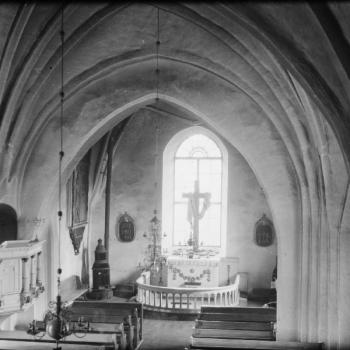
Times are, to read the news, bleak. And if I needed any additional confirmation, my own recent sourness stands in accusation. I accuse myself: recently I have been less patient, less kind, than I ought.
And yet—to rip it out of context—as the old hymn goes: the saints come marching in.
Today, February 9th, is the feast (in the Ruthenian Church) of St. Nicephorus of Antioch. Saying my morning prayers, I was struck by the brief comment Archbishop Raya makes about him: he died standing up for an “apostate priest.” Never having heard of Nicephorus, my closest mental analogue was St. Maximillian Kolbe, yet this seemed even more radical—to die for a denier of the Faith as opposed to one who never knew it.
I did a bit of digging and what I discovered is extraordinary—a beacon for dark times, a sign of love in an age caught between growing hate and structurally-induced greed.
To tell it briefly (and I hope with some beauty) Nicephorus was a dear friend to a priest named Sapricius. The two fell out and initially the future saint was consumed with anger; he refused to forgive his former friend. Yet, the Lord mended his soul, softened his hardened heart, and he forgave Sapricius.
But his friend would not forgive him. No matter how hard he tried the priest could not find it in himself to grant forgiveness to Nicephorus. The latter begged and begged while the former simply refused: the shepherd shirked his sheep.
Persecutions broke out under the emperors Valerian (253-259) and Gallius (260-268) and Sapricius was arrested. Torture, bitter calumny—he endured this and more, and yet refused to renounce his faith. Enter Nicephorus who tried one last time to be forgiven by his old friend, crying out: “O martyr of Christ, forgive me if I have sinned against you in any way.”
Nothing. The priest remained stubborn, and so God hardened his heart; he apostatized right before the end, sacrificing to idols.
And how did Nicephorus react? He pleaded with his friend to reconsider, but—more radically—he confessed himself a Christian and offered to die in place of the fallen priest. As the OCA’s website puts it: “Thus did Saint Nicephorus inherit the Kingdom and receive a martyr’s crown.”
We all know the passage, the words haunting this tale: a man can do no greater than to give his life for a friend. Nicephorus did, it seems, something even more unthinkable: he died for an old friend turned enemy—an apostate; he, as the Lord instructs us, refused to make sacrifice before he had mended relations with his brother. Nicephorus gave himself for a denier of God; more truly, he gave himself in the name of the love that is God.
Still we argue; still we fight amongst ourselves. We brood of vipers…













